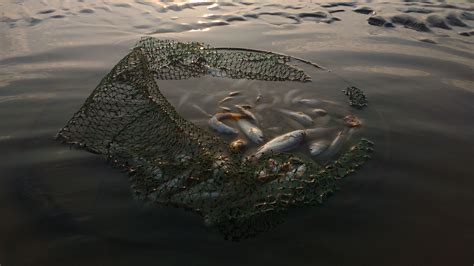Illegal Fishing: A Comprehensive Guide to Understanding its Impact, Causes, and Solutions
Illegal, unreported, and unregulated (IUU) fishing poses a significant threat to the global ocean and its resources. This comprehensive guide delves into the definition, impact, causes, and potential solutions to combat this pervasive problem.
What is Illegal Fishing?
Illegal fishing encompasses a wide range of activities violating national and international laws related to fishing. This includes:
- Fishing without a license: Operating without the necessary permits to fish in specific areas or species.
- Fishing in protected areas: Violating regulations established to safeguard sensitive marine ecosystems and endangered species.
- Using illegal fishing gear: Employing prohibited methods like explosives or fine-mesh nets that indiscriminately catch fish, harming marine life.
- Underreporting or misreporting catches: Failing to accurately record the quantity and types of fish caught, hindering effective stock management.
- Transnational organized crime: Involvement of criminal networks in illegal fishing operations often linked to other illegal activities such as drug trafficking and human smuggling.
The Devastating Impact of Illegal Fishing
The consequences of illegal fishing extend far beyond the depletion of fish stocks. It has profound and interconnected impacts:
- Biodiversity loss: Unsustainable fishing practices decimate fish populations and damage marine habitats, threatening marine biodiversity.
- Economic losses: Legal fishers suffer from unfair competition, and coastal communities reliant on fishing for their livelihoods face economic hardship.
- Food security: Overfishing diminishes the availability of affordable and nutritious seafood, affecting food security, especially in developing countries.
- Environmental damage: Bycatch (unintentional capture of non-target species) harms marine ecosystems and leads to waste. Habitat destruction from destructive fishing practices further exacerbates the problem.
- Human rights abuses: Illegal fishing operations are often linked to labor exploitation, including forced labor and human trafficking.
Understanding the Root Causes of Illegal Fishing
Several interconnected factors contribute to the prevalence of illegal fishing:
- Weak governance and enforcement: Lack of effective monitoring, control, and surveillance mechanisms allows illegal activities to thrive. Corruption further undermines efforts to enforce regulations.
- High demand for seafood: Growing global demand for seafood creates a lucrative market for illegal fishing operations.
- Lack of traceability and transparency: Opacity in supply chains makes it challenging to identify and trace illegally caught fish.
- Subsidies that promote overcapacity: Government subsidies to the fishing industry can inadvertently encourage overfishing and exacerbate the problem.
- Poverty and lack of alternative livelihoods: In some regions, poverty and lack of opportunities drive people towards illegal fishing as a means of survival.
Combating Illegal Fishing: Towards Sustainable Solutions
Addressing illegal fishing requires a multi-pronged approach involving collaboration between governments, international organizations, and stakeholders:
- Strengthening governance and enforcement: Improving monitoring, control, and surveillance measures, including satellite technology and improved vessel tracking systems. Increased penalties and stricter enforcement of existing regulations are crucial.
- Promoting sustainable fisheries management: Implementing effective fisheries management plans based on scientific data to ensure sustainable fish stocks.
- Improving traceability and transparency: Establishing robust traceability systems to track seafood from the point of catch to the consumer, making it easier to identify and prevent illegal fish from entering the market.
- Reducing harmful subsidies: Phasing out government subsidies that contribute to overcapacity and unsustainable fishing practices.
- Empowering local communities: Supporting sustainable alternative livelihoods for communities dependent on fishing, providing them with opportunities to participate in responsible resource management.
- International cooperation: Strengthening international collaboration through agreements and information sharing to address transnational organized crime related to illegal fishing.
Conclusion:
Illegal fishing is a complex global challenge requiring concerted efforts from all stakeholders. By understanding its impact, causes, and potential solutions, we can work towards a more sustainable future for our oceans and the communities that depend on them. The fight against illegal fishing is crucial for the health of our planet and for ensuring food security for generations to come.
